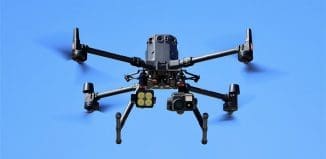The Ebola epidemic: Carriers difficult to detect
This post is also available in:  עברית (Hebrew)
עברית (Hebrew)
 On Thursday, the Nigerian government announced that they had started screening passengers at international airports for signs of Ebola after a passenger showed up in Lagos suffering from the illness, which kills up to 90 percent of the people infected with it. Treatment options are extremely limited. Nigerian airport authorities will be checking passengers who just arrived from Sierra Leone, currently under a state of emergency, and they’ll be looking for fever, since an elevated temperature is considered a sign of Ebola. If the passenger is presenting with higher than normal temperatures, screeners would subject the passenger to a blood test.
On Thursday, the Nigerian government announced that they had started screening passengers at international airports for signs of Ebola after a passenger showed up in Lagos suffering from the illness, which kills up to 90 percent of the people infected with it. Treatment options are extremely limited. Nigerian airport authorities will be checking passengers who just arrived from Sierra Leone, currently under a state of emergency, and they’ll be looking for fever, since an elevated temperature is considered a sign of Ebola. If the passenger is presenting with higher than normal temperatures, screeners would subject the passenger to a blood test.
Ebola is moving into more countries across Africa, but not as quickly as is fear. The country of South Africa announced Thursday that they were in the process of outfitting airports with thermal scanners to detect feverish passengers. In many ways, it’s a repeat of 2009, when airports around the world brought in thermal scanners to look for passengers who were presenting with fever and suspected bird flu.
Experts agreed that a test able to reveal the presence of Ebola on location at an airport checkpoint—and do so in a relatively short amount of time—would greatly improve authorities’ ability to stop the virus from crossing international borders. One person working on that is Douglass Simpson, CEO of Corgenix, which in June received a $3 million National Institutes of Health grant to develop a point-of-care test for Ebola. Airport screeners would use it to spot the virus in a feverish passenger in just ten minutes at airports. “Our job is to as quickly as possible advance those tests and make them available in those zones,” Simpson said.
Pre-screening passengers for Ebola on the basis of where the passenger has been and the likelihood of coming into contact with the disease is probably a more effective means to catch it than is trying to take the temperature of thousands of people with a camera. “Prescreening would be prudent, and reasonable, based on the information available. Public health personnel would need to develop appropriate criteria that yield good results and also limit false positives. In essence, prescreening, if done appropriately, can work in any type of screening mechanism,” Sheldon H. Jacobson, a professor of computer science at the University of Illinoi wrote to Defense One.
iHLS – Israel Homeland Security
Ebola is passed through fluids such as blood and so health care workers treating infected populations, and doing so in less than ideal settings like clinics in Sierra Leone, are the most vulnerable.
While point-of-care tests for Ebola won’t be deployable for at least two years, biometric facial recognition technology and other security screening technologies to detect are far more advanced, but they have yet to be fully implemented. “The technologies are good and mature. I think one of the areas where [The Department of Homeland Security] DHS struggles is tooth to tail. Where do you have people to back up and integrate with technology to make the best effective use of it. DHS acquisition processes are maturing…but are not perfect,” Jack Riley, the director of the RAND National Defense Research Institute, testified.
Dr. Boaz Lev, Associate Director General and head of the health division at the Israeli Ministry of Health, gave iHLS the following details regarding the issue:
-
As of August 5, 2014 the Ministry of Health does not implement any measures aimed at preventing Ebola carriers or those actively suffering from the disease from entering the state of Israel.
-
The ministry is following the guidelines set by the World Health Organization regarding the Ebola outbreak.
-
The ministry has been preparing to issue its own set of guidelines to the various Israeli medical teams (at hospitals, paramedics, etc.), dealing with proper isolation of patients, protective measures during medical examinations and guidelines for Israelis who might encounter Ebola carriers while traveling to or from Africa.
According to Dr. Lev there are currently no known Ebola carriers in Israel.






























